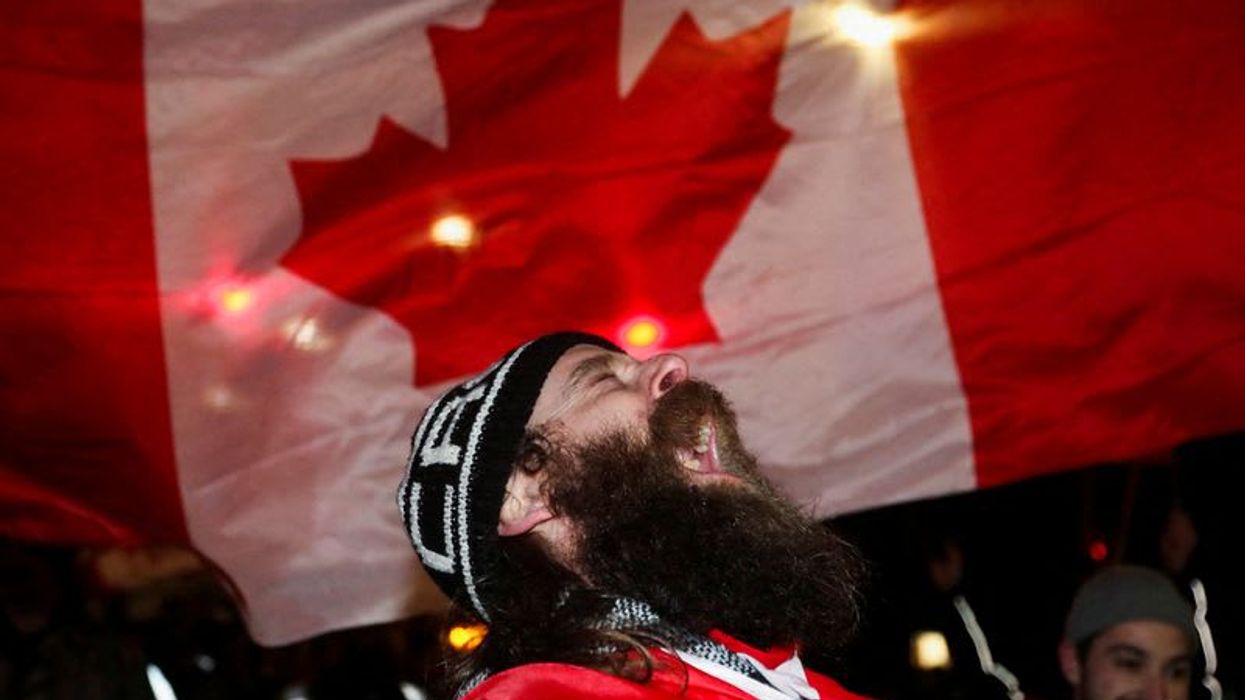Meeting With Canada's New Prime Minister, Trump Displays Mental Decay
President Donald Trump hosted newly minted Canadian Prime Minister Mark Carney at the White House Tuesday—and in the process showed that his 78-year-old brain has completely turned to mush.
He incorrectly said that a Russian hockey player is from Canada and baselessly claimed to have solved California's drought problems. But let’s break down Trump’s idiotic claims point by point.
In one exchange, a reporter asked Trump about his punishing 145% tariffs on Chinese imports, which for all intents and purposes is a trade embargo on a major U.S. trade partner.
"By not trading, we're losing nothing. So we're saving a trillion dollars. That's a lot,” he said.
- YouTubeyoutu.be
Of course, since China manufactures trillions of dollars worth of goods, not trading with them means we are losing quite a lot. Many of the products made in China cannot be manufactured in the United States, so shortages are about to hit. And with shortages come higher prices, since demand will outstrip supply. And that will hurt U.S. consumers.
“Trading with others generates gains for both sides of the transaction. Trump's tariffs prevent trade, destroying the gains both for Americans and our trading partners. Recognize that symmetry and you'll see how much he's hurting Americans,” Justin Wolfers, University of Michigan economics professor, wrote on X.
In yet another head-scratching moment, Trump claimed that the United States doesn't do much business with Canada, which is absurdly incorrect.
“We don’t do much business with Canada from our standpoint,” Trump said, as a very shocked Carney sat beside him. “They do a lot of business with us.”The United States imported $412.7 billion worth of goods from Canada in 2024, according to U.S. Trade Representative Jamieson Greer. Meanwhile, the United States exported $349.4 billion to Canada in 2024, meaning that we take in more from Canada than we export.
- YouTubeyoutu.be
In 2023, the United States imported $122.9 billion worth of fuel; $64.7 billion in transportation equipment; and billions in metals, machinery, and fertilizers from Canada.
In fact, farmers have been warning against Trump’s tariffs on Canada, saying that the increase in fertilizer prices will cause painful inflation to U.S. consumers.
As Trump continued his meeting with Carney, he tried to bully the newly elected prime minister into making Canada the 51st state.
"I love Canada. I have a lot of respect for the Canadians. … You happen to have a very, very good hockey player right here on the Capitals, he is a big tough cookie too, just broke the record,” Trump said.
He was referring to Alex Ovechkin, who is Russian—not Canadian. Surely if former President Joe Biden had made a similar comment, questions about his mental fitness would blanket corporate media airwaves.
Trump also spoke of his moronic belief that he somehow saved California from droughts, bragging about how he gave Democratic Gov. Gavin Newsom “a lot of water.”
“If they would've had that water and done what I said to do, they wouldn't have had the fires in Los Angeles,” he said.
- YouTubeyoutu.be
In fact, Trump's water gambit of opening dams ended up wasting billions of gallons of water that California farmers needed for crops—and it didn’t even end up going to Los Angeles.
“They were holding extra water in those reservoirs because of the risk that it would be a dry summer. This puts agriculture at risk of insufficient water during the summer months,” Heather Cooley, Pacific Institute director of research, told CNN. “It’s providing zero benefit and putting California farmers at risk of water supply constraints in the coming months.”
Well, at least Canadian voters saw through Trump’s bullshit.












